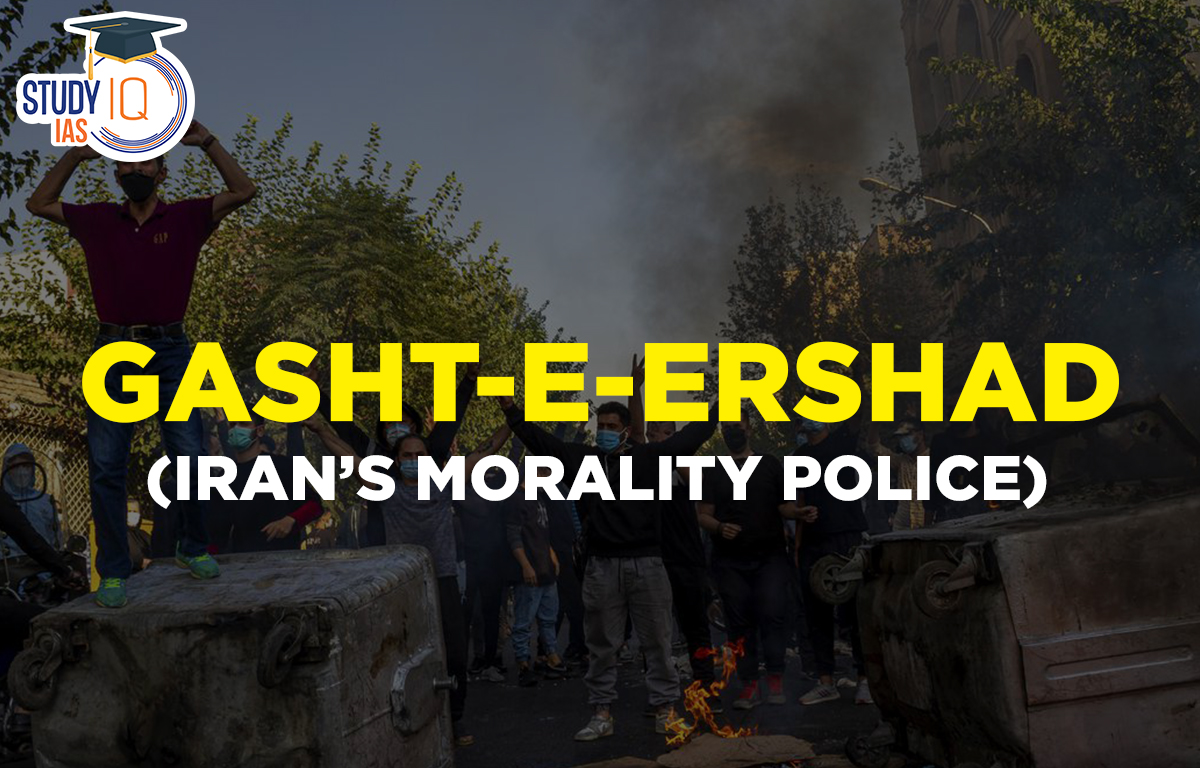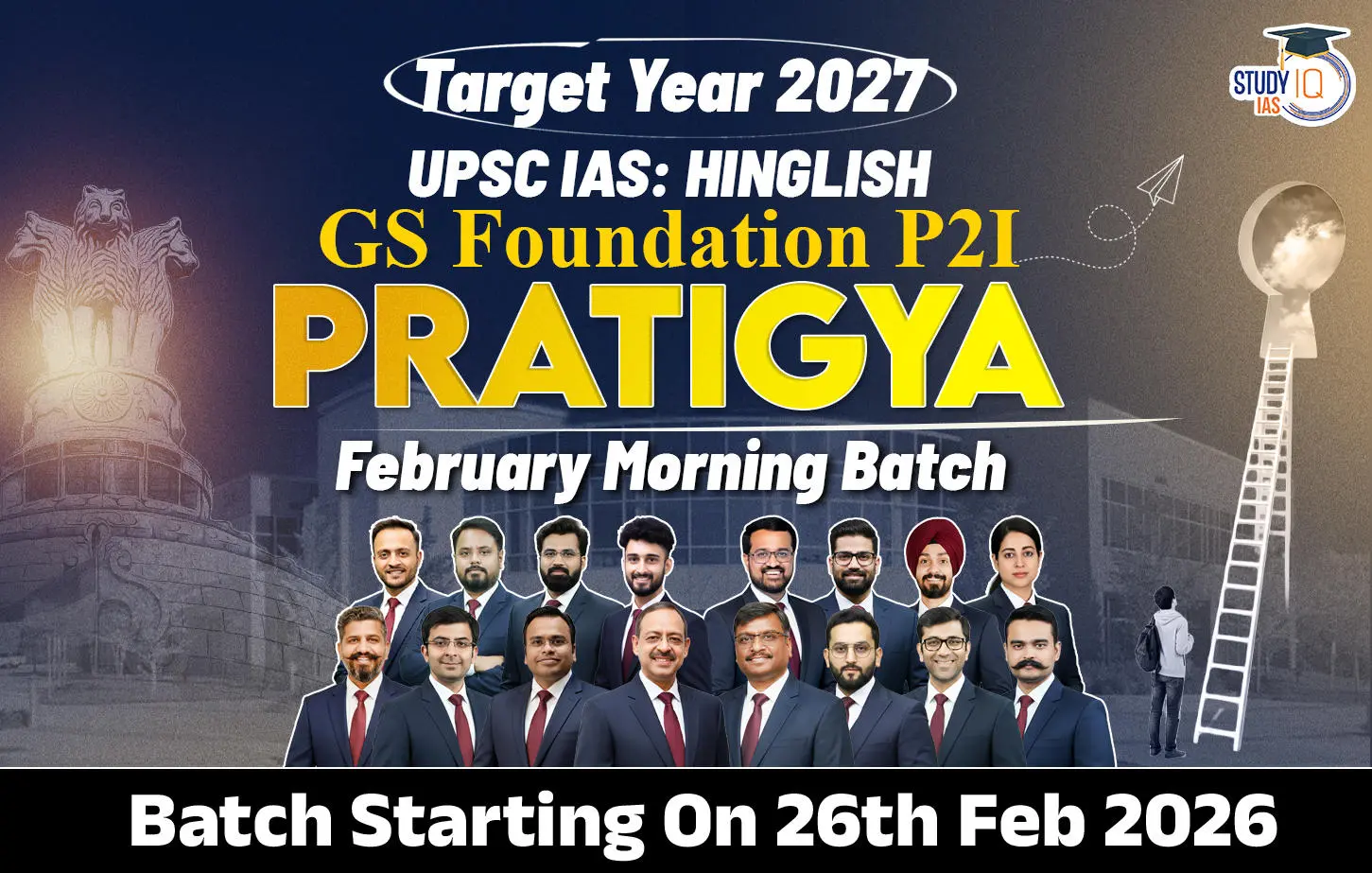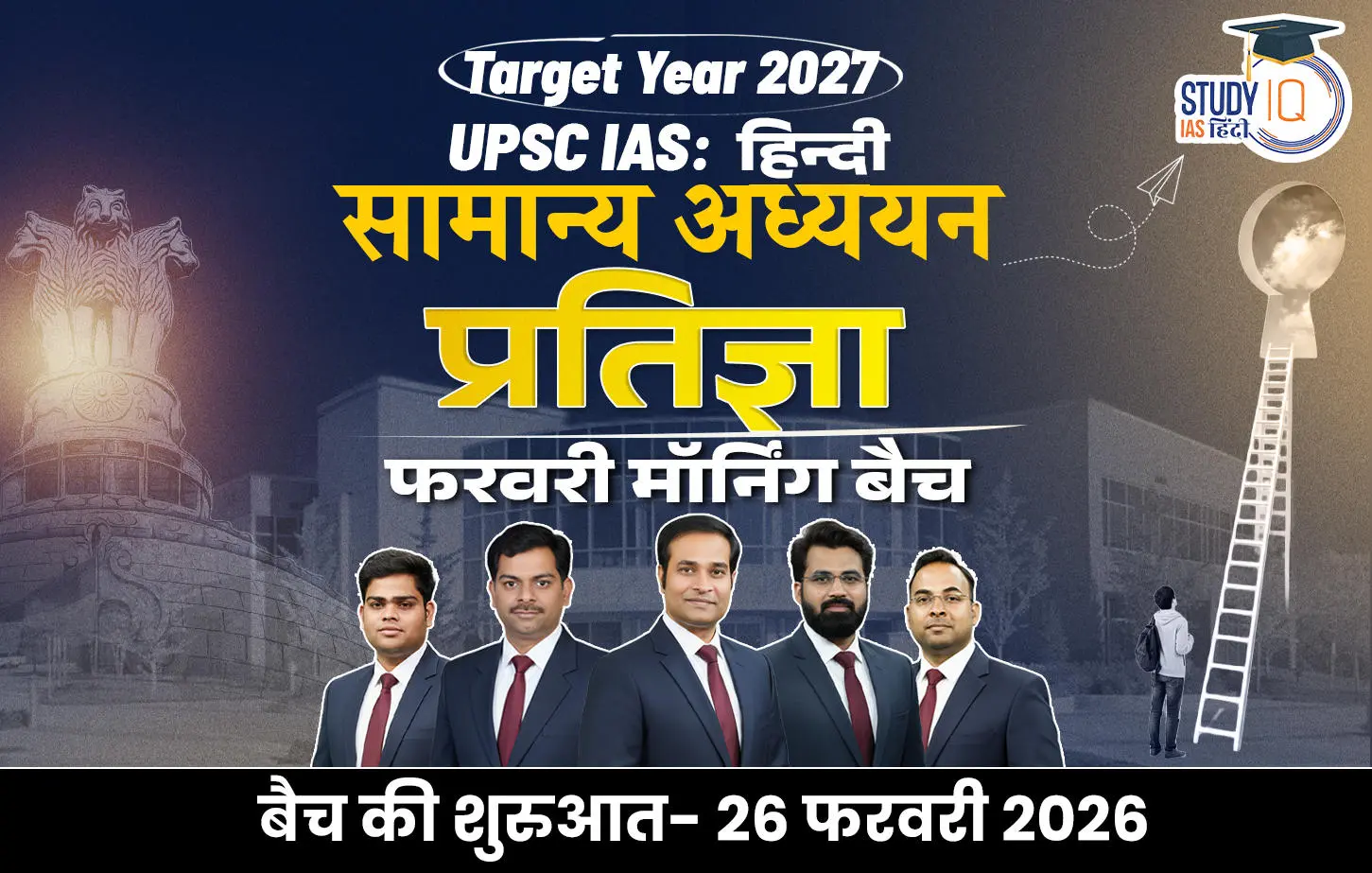Table of Contents
Who are Iran’s Morality Police?
“Gasht-e-Ershad,” which translates as “guidance patrols,” and is widely known as the “morality police”.
They are a unit of Iran’s police force established under former hardline president Mahmoud Ahmadinejad in 2005.
Functions of Morality Police:
- The group oversees the enforcement of Iran’s restrictions on behavior and clothing in public.
- The aim is to “spread the culture of modesty and hijab”, the mandatory female head covering.
- The morality police also bans tight trousers, ripped jeans, brightly coloured outfits and clothes exposing knees for women.
Composition: Both men and women officials are part of the morality police.
Read about: eSanjeevani OPD
How the Gasht-e Ershad Works?
- The Gasht-e Ershad patrols usually use a van with both a male and a chador-clad female crew.
- Their job is to stand and observe people in busy public places, after which they detain women for not wearing hijabs in a “proper” manner and other dress code violations.
- What is proper and what isn’t often depends on the patrol agents on the scene. It could be anything ranging from too short a hijab to too much makeup.
- The detained women are then taken if not to the police station, then to a “correctional facility or a “re-education centre where they are told how to dress.
- They are then usually always released on the same day to male relatives who bring the “proper” clothes for them.
Read About: Calling Name Presentation (CNAP)
About the Islamic Revolution 1979
- Iranian Revolution, also called Islamic Revolution, was a popular uprising in Iran in 1978–79 that resulted in the toppling of the monarchy and led to the establishment of an Islamic republic.
- The revolution was for the removal of Mohamed Reza Shah Pahlavi, the country’s monarch since 1941. He was supported by Western Countries like the United States and the United Kingdom.
- The Impact of the Revolution:
- It was a watershed event that not only transformed Iran completely, but also had far-reaching consequences for the world.
- It caused a deep shift in Cold War and global geopolitics as US not only lost a key strategic ally against the communist threat, but it also gained a new enemy.
- The Iranian revolution dramatically altered Middle Eastern politics. The revolution sought a region-wide Shia revival, and an uprooting of the existent dominant Arab Sunni hegemony in the Middle East; this has brought Iran into conflict with Saudi Arabia.
- Restriction on women’s rights:
- Between 1962 and 1978, the Iranian ‘Women’s Rights Movement’ gained victories such as the right for women to vote in 1963, women were also allowed to take part in public office, and in 1975 the Family Protection Law provided new rights for women, including expanded divorce and custody rights and reduced polygamy.
- Since the Islamic Revolution of 1979, women’s rights have been restricted, and several laws were established such as the mandatory veiling and a public dress code for women.
Read about: Postal Ballot
Restriction Of Women’s Rights Across The World
Taliban Regime in Afghanistan: Women were denied employment and educational rights. And the Taliban have also imposed new restrictions on women’s dress code and conduct.
Saudi Arabia: Saudi Arabia allowed women to vote starting in 2015 and has allowed women to drive only recently.
Egypt: A married woman can leave the house only for purposes allowed by law or custom, otherwise she needs her husband’s permission or she loses her right to financial support.
There are 32 countries where women need their husband’s permission to apply for a passport.
In Israel, a woman needs her husband’s permission to get a divorce.
According to a World Bank report, in 86 countries, women face some form of job restriction and 95 countries do not guarantee equal pay for equal work.


 CGPSC Prelims Answer Key 2026: Download ...
CGPSC Prelims Answer Key 2026: Download ...
 CGPSC Question Paper 2026 – Download C...
CGPSC Question Paper 2026 – Download C...
 Graphic Processing Units (GPUs) – Work...
Graphic Processing Units (GPUs) – Work...




















